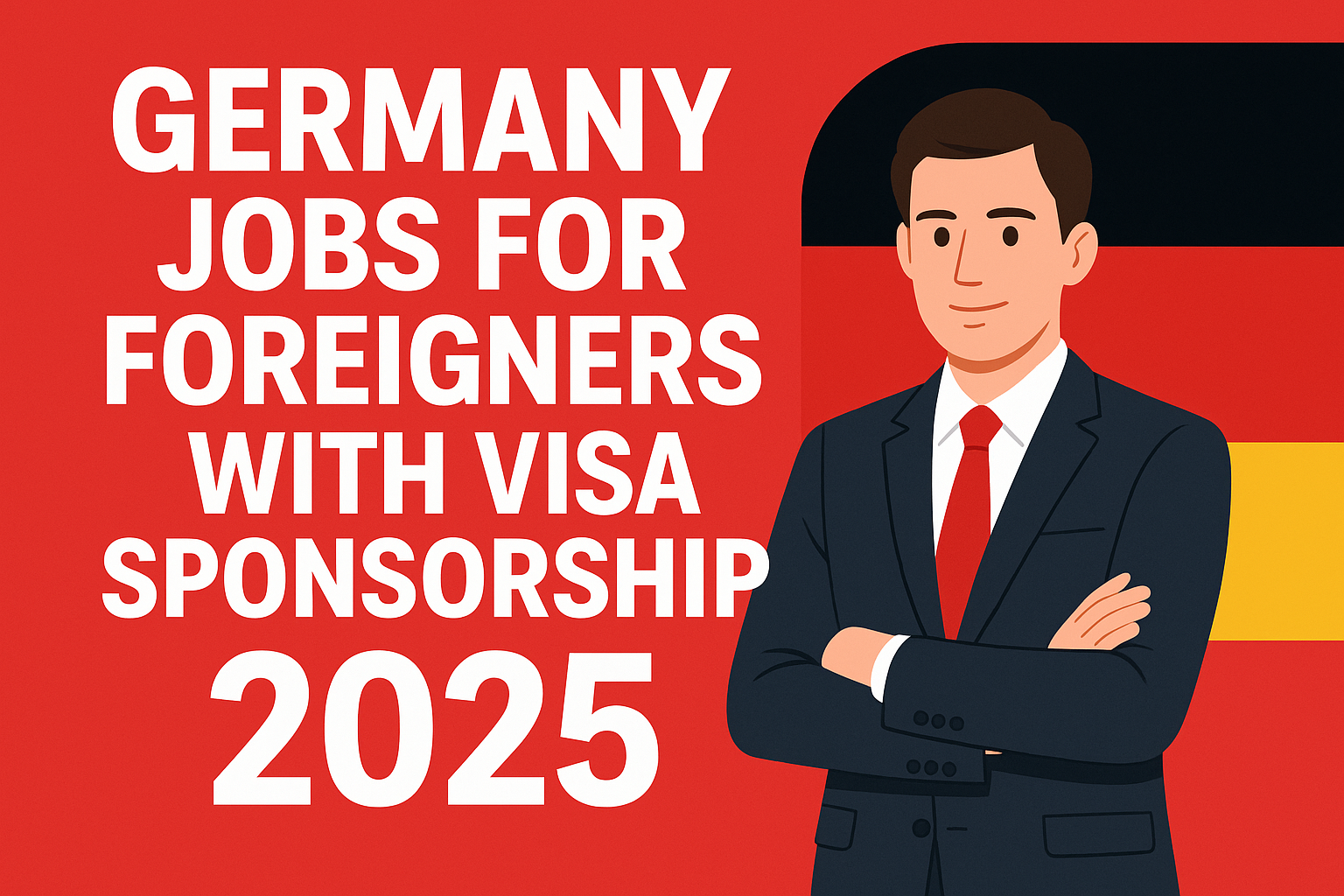Germany remains one of Europe’s strongest economies, and in 2026, it’s more open than ever to skilled foreign workers. With major labor shortages across industries like IT, healthcare, and engineering, many German employers are actively offering visa sponsorships to attract international talent.
Whether you’re a recent graduate or a professional looking to relocate for better opportunities, this guide explains everything you need to know about Germany jobs for foreigners with visa sponsorship in 2025 — including top sectors, visa options, requirements, and how to apply.
Why Germany Needs Foreign Workers in 2026
Germany’s workforce is aging, and birth rates remain low. To keep its industries running, the government introduced policies under the Skilled Immigration Act and updated the EU Blue Card system to make hiring foreign professionals faster and easier.
In 2025, the country plans to welcome over 400,000 skilled migrants per year to fill labor gaps. This makes it one of the most foreign-worker-friendly countries in Europe.
Top Sectors Offering Visa Sponsorship in Germany
1. Information Technology (IT)
The tech industry is booming, and Germany’s demand for software developers, cybersecurity experts, data analysts, and cloud engineers is higher than ever. Many tech companies hire in English and are open to sponsoring work visas.
2. Healthcare
Doctors, nurses, and caregivers are in short supply. Hospitals and care homes are willing to cover relocation costs, German language training, and visa processing for qualified medical professionals.
3. Engineering & Manufacturing
Germany’s automotive, construction, and renewable energy industries need engineers and technicians. Skilled mechanical, civil, and electrical engineers can easily secure employer sponsorship.
4. Skilled Trades
Electricians, welders, plumbers, and construction workers are also in demand. Many vocational workers are now eligible for sponsorship under the new immigration laws.
5. Education & Research
Universities and technical institutions often sponsor foreign researchers, lecturers, and lab assistants, especially in STEM and innovation fields.
Visa Options for Foreign Workers
1. EU Blue Card
For university graduates with a job offer and a salary above €48,300 (or €43,800 for shortage professions). It allows long-term residence and an easy path to permanent settlement.
2. Skilled Worker Visa
For those with recognized vocational qualifications. Employers can sponsor your visa if your skills match Germany’s shortage list.
3. Job Seeker Visa
If you don’t yet have an offer, this visa lets you stay in Germany for six months to search for a job. Once hired, you can switch to a work visa or Blue Card.
How to Find Sponsored Jobs
- Visit make-it-in-germany.com for verified openings.
- Search on LinkedIn, StepStone, or Indeed Germany.
- Network in professional forums and expat groups.
- Apply directly to large employers or recruiting agencies that handle visa sponsorship.
Requirements to Qualify
To be considered for visa sponsorship, you’ll need:
- A valid job offer from a German employer
- Relevant qualifications (university degree or vocational training)
- Recognized documents and translations
- Proof of work experience
- Basic knowledge of German (B1 or higher preferred for most jobs)
Quick Tips for Success
✅ Tailor your CV and cover letter in German format
✅ Mention clearly that you need visa sponsorship
✅ Highlight experience and certifications in shortage areas
✅ Learn basic German to improve hiring chances
Final Thoughts
Germany’s 2026 job market offers huge opportunities for skilled foreigners. With the right qualifications and preparation, you can land a job with visa sponsorship, settle legally, and build a long-term career in Europe’s economic powerhouse.


